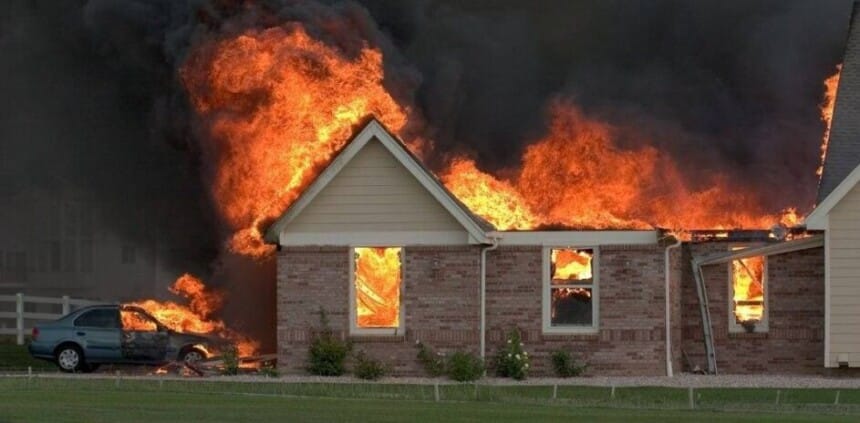It’s everyone’s worst nightmare. Your house catches fire, and you have to watch helplessly as the firefighters douse the flames and breakthrough doors, windows, the roof, and walls to keep damage to a minimum. That part is out of your hands, but what can you do to lessen the financial and personal damage? Cleaning up will happen later on, after the literal dust (and ash) settles—but until then, here’s what to do immediately after a house fire.
Alert Everyone You Know
Make calls to your closest friends and family members. Before a fire happens, ensure you have a list of contacts stored somewhere besides your phone. Preplan a phone tree. Memorize a few important numbers, then ask those people to be prepared to call others. You need to activate your support network so you’re not carrying the entire burden.
Contact Your Insurance Agent ASAP!
The sooner you submit your claim, the sooner your insurer can start the process of compensating you. You may be due an advance, which can come in handy if you escaped the house without even the basics. The insurance company may also send someone to secure your home, tarping the roof and boarding the doors and windows to prevent robbery or animal infestation. Get a binder to store all your receipts, too.
Find a Place to Stay
If the damage is minimal, you may be able to return to your home right away, but that’s entirely in the hands of the fire department. They need to ensure your home is safe, and that all the utilities are in good working order. If they aren’t, your home will be off-limits. Find a place to stay—whether at a hotel or a friend’s, neighbor’s, or family member’s home. Keep in mind where your pets can live for the time being. Children and pets may be especially scared and agitated. Try to find them a safe place as soon as possible.
Ask for Help from Outside Organizations
Especially hit hard and waiting to hear back from your insurer? Multiple organizations are available to help. In a more widespread disaster situation, the Red Cross may already be operating in your area; but if not, check to see if the local branch can offer a hand. Likewise, contact local houses of worship, public health services, community groups, and local and state emergency services.
Figure Out What’s Missing
Documentation is a lifesaver. Figure out what important papers were lost in the fire and request, search, and apply for back-up copies. Vital documents include your driver’s license, social security card, insurance policies, auto registration, passports, birth and death certificates, medical records, titles and deeds, stocks and bonds, wills, and more. Save several steps by ensuring these documents, or copies of them, are safely protected elsewhere.
Things won’t be easy in the subsequent months, but they’ll be a lot easier if you know what to do immediately after a house fire. With hope, you’ll never ever need the above tips.










